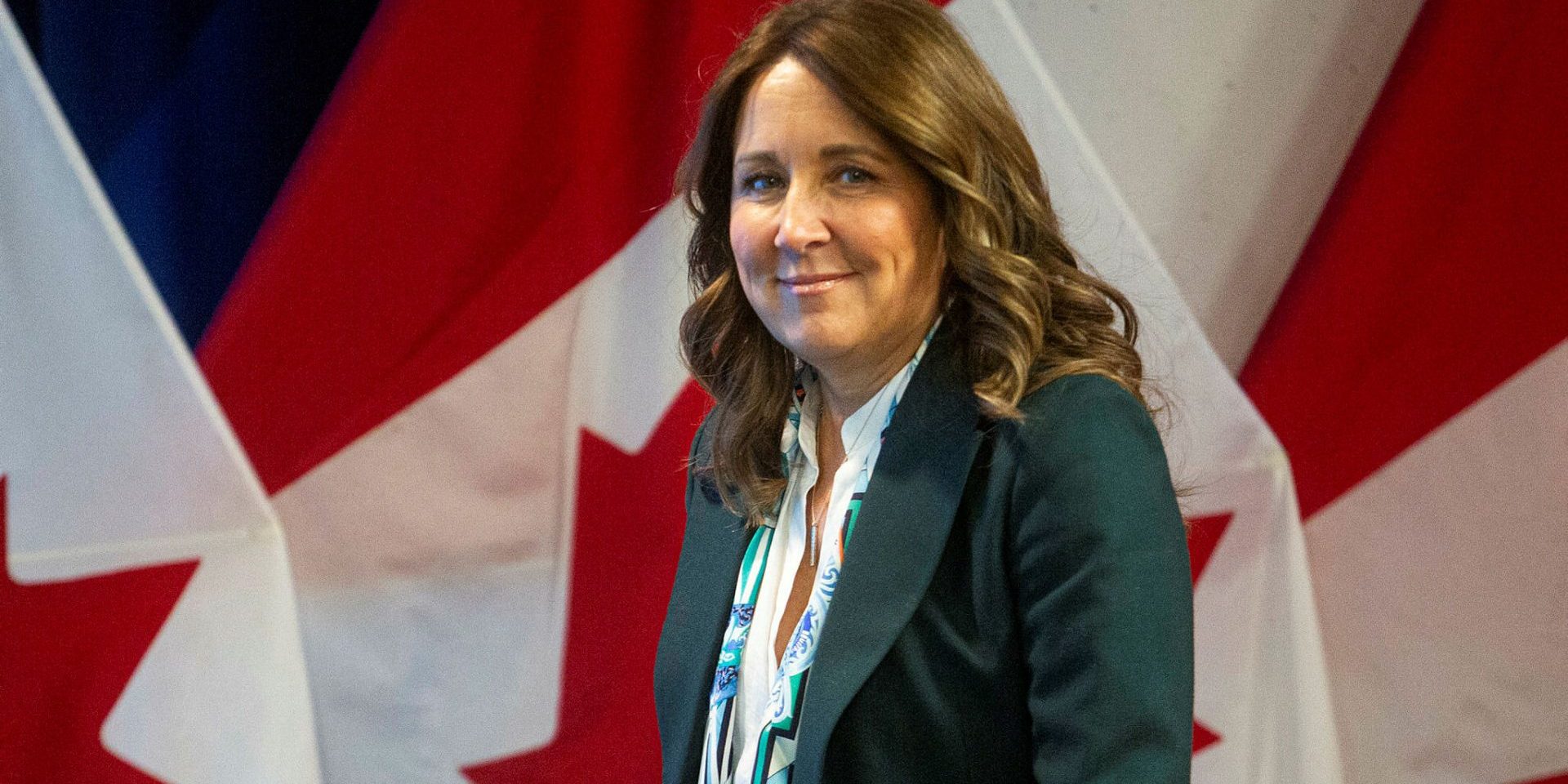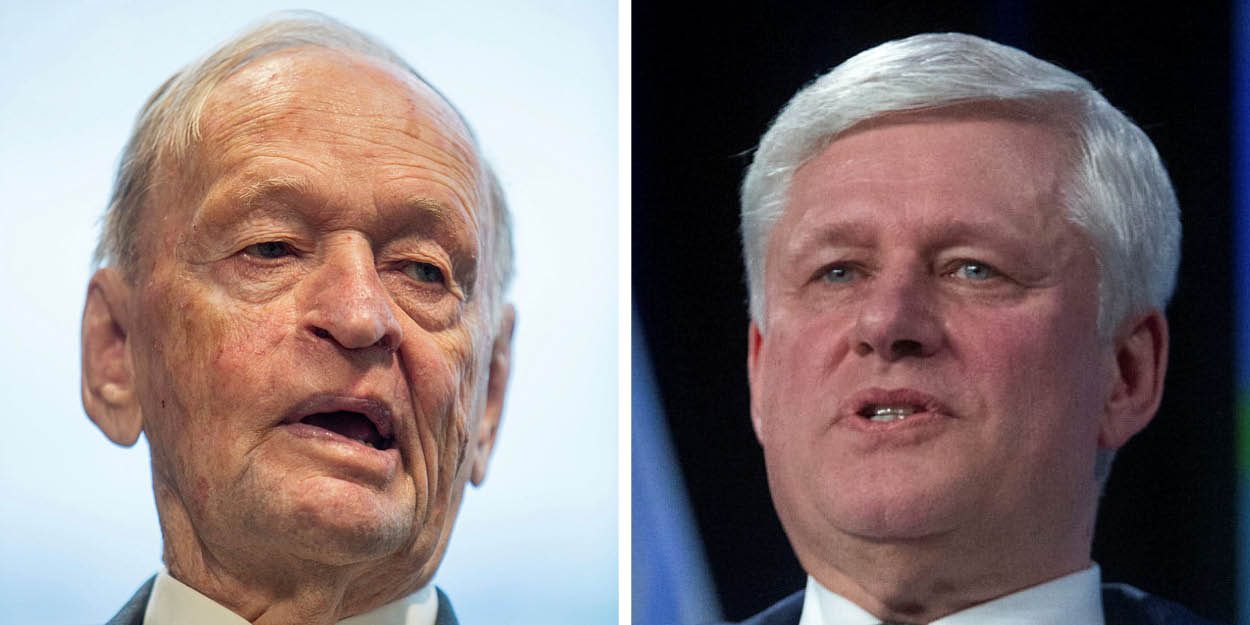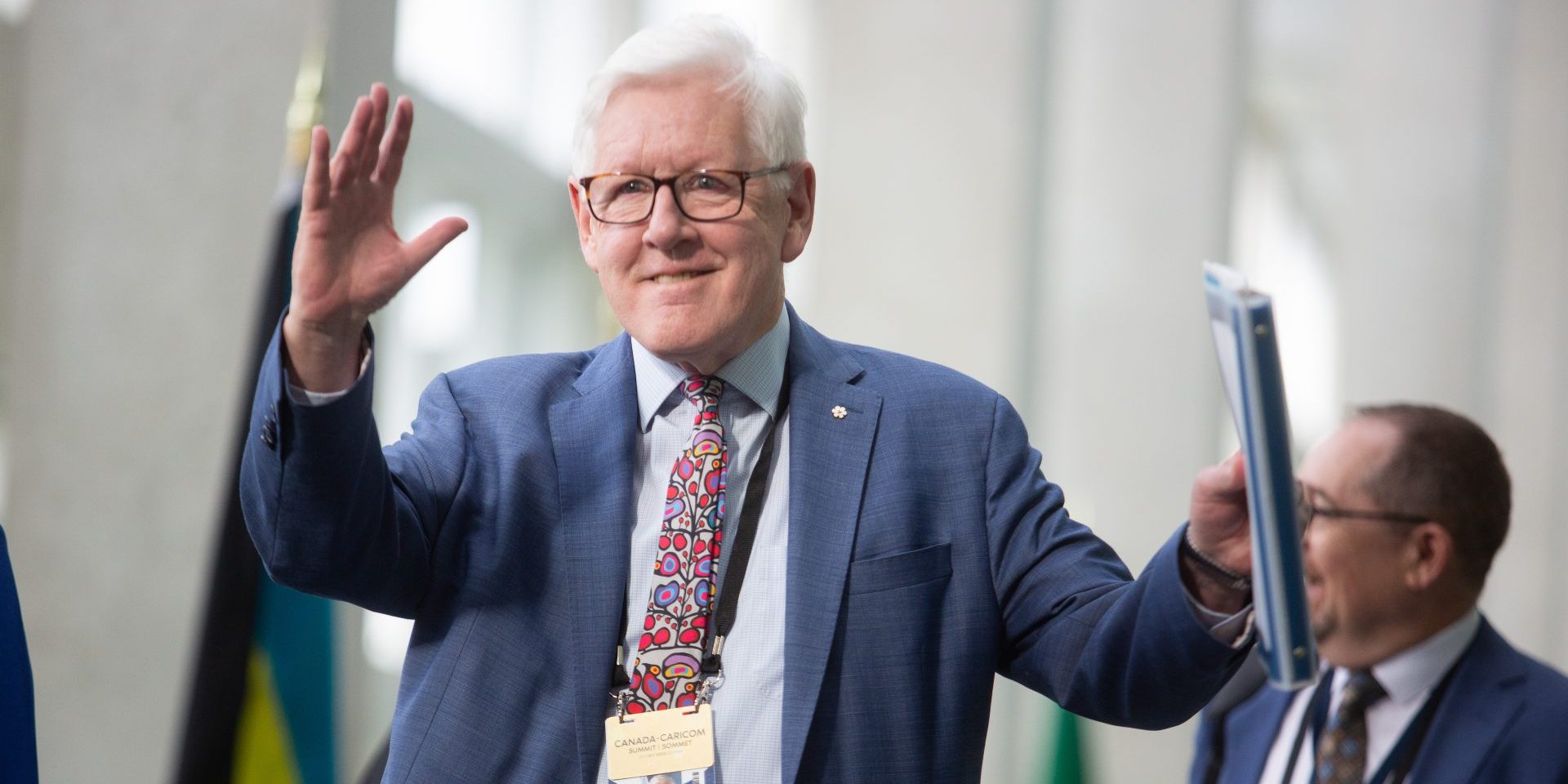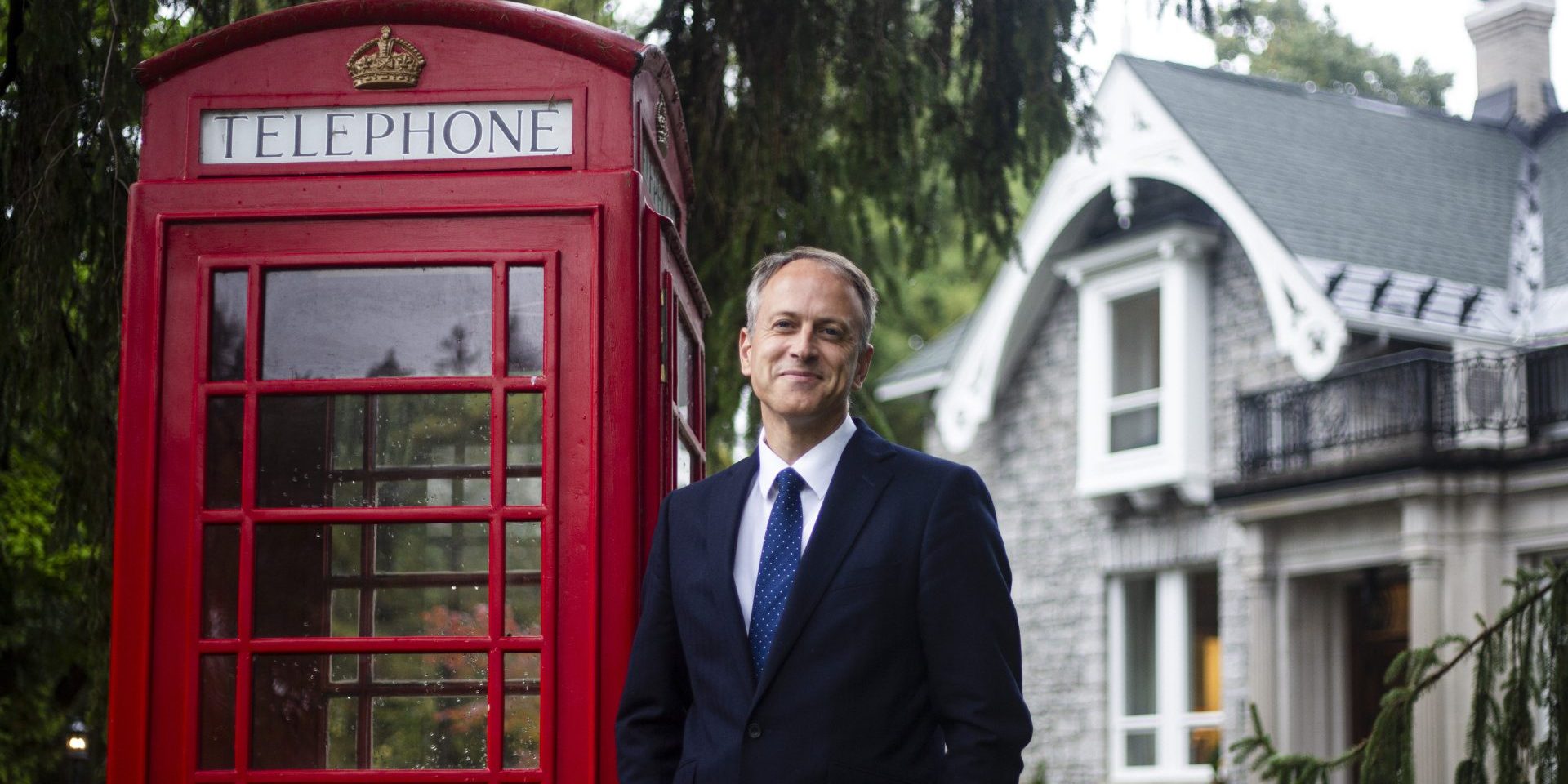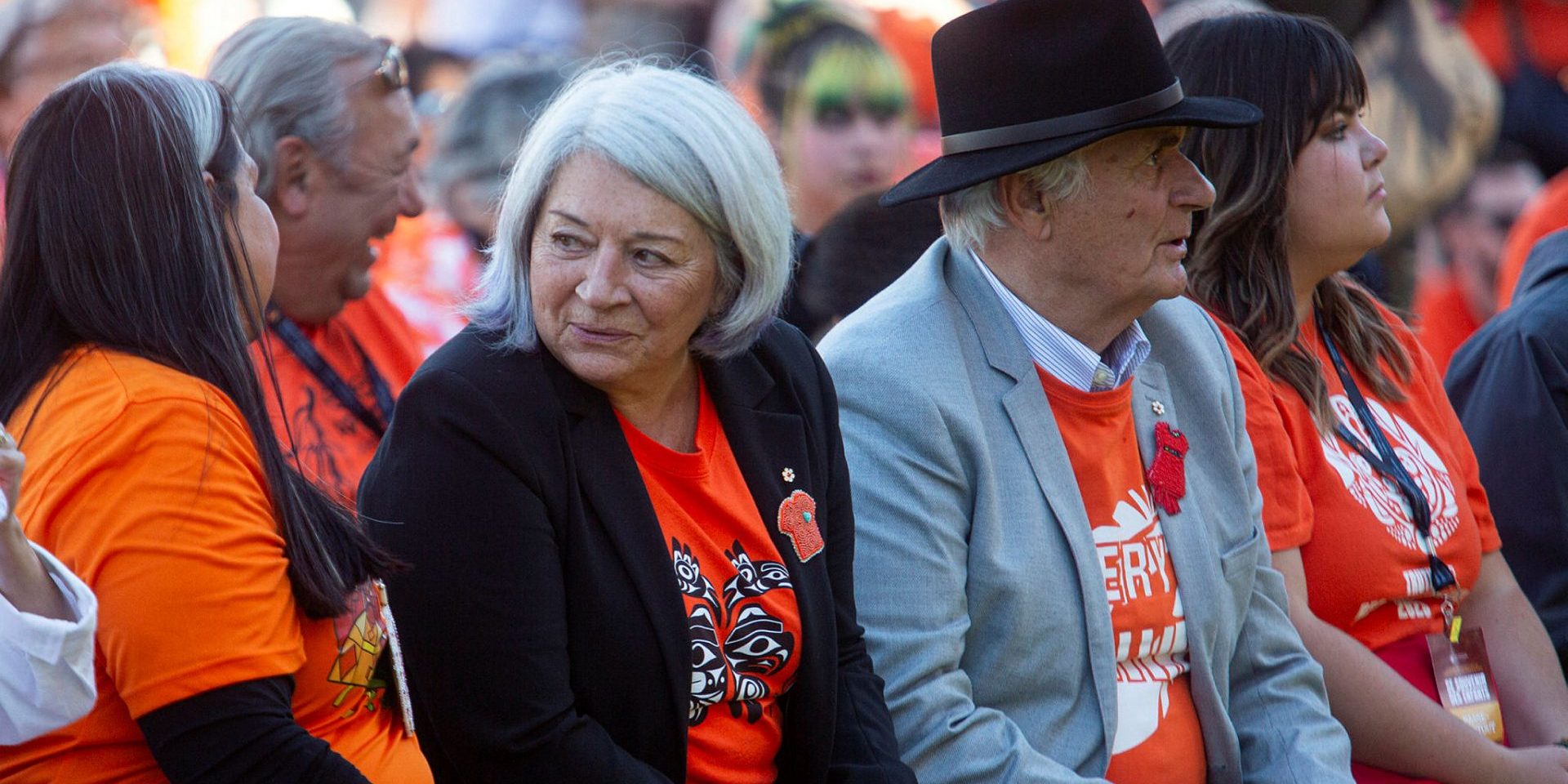Politics This Morning
Day three: Carney tours Nova Scotia, Poilievre in the GTA
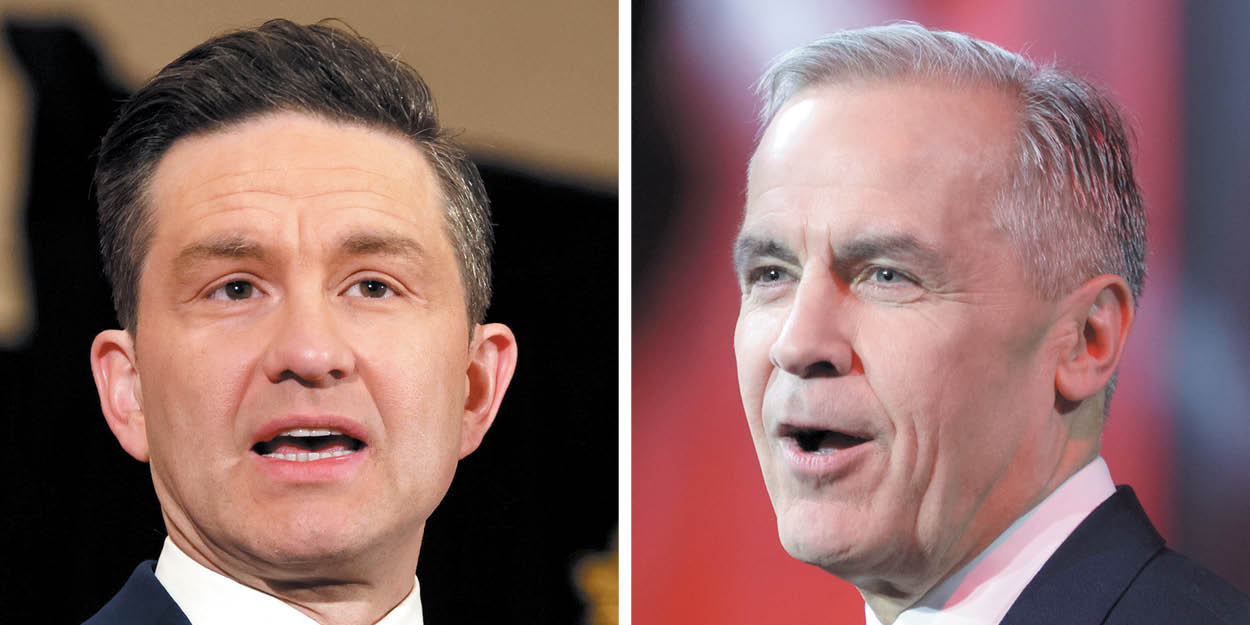
Good Tuesday morning,
In today’s Politics This Morning:
- The PBO sets the fiscal baseline for big spending promises.
- Liberal and Conservative tax cuts, compared.
- Leaders’ debates set for Montreal.
Where the leaders are
Carney in Nova Scotia
Prime Minister MARK CARNEY has moved from Newfoundland to Nova Scotia, where today he’ll hold public events in three different communities.
At 9 a.m. ADT, Carney will tour what his team is calling “a facility” in Halifax. (Hey, “open and transparent by default” was the last guy, and we know how that turned out.)
A half hour later, Carney will make an announcement of some sort in Halifax…presumably at the same “facility.”
Then it’s on to Dartmouth, where at 10:45 ADT, Carney will tour another “facility”. In the early afternoon, he’ll be in the town of Elmsdale to visit—you guessed it—a “facility.”
Carney has led a big Liberal turnaround in the polls, and that’s more apparent in Atlantic Canada than anywhere else. A few months ago, the Conservatives looked poised to scoop up a significant share of the Liberal seats in the region. Now? Not so much.
Halifax is split into two ridings: Halifax, which was until recently represented by Liberal ANDY FILLMORE, and Halifax West, which Liberal LENA DIAB likewise won in the last election.
Dartmouth is part of the Dartmouth-Cole Harbour riding, which was won in the last election by Liberal DARREN FISHER.
Elmsdale is split between two ridings: Central Nova and Kings Hants, which were won in the last election by Liberals SEAN FRASER and KODY BLOIS, respectively.
Poilievre in Vaughan
Conservative Leader PIERRE POILIEVRE is in Vaughan, Ont. this morning. He’s planning to hold a press conference there at 10 a.m.
Poilievre is holding the presser in what appears to be a parking lot, across the street from a housing construction project.
The site of the presser falls within Vaughan-Woodbridge, a riding that Liberal FRANCESCO SORBARA has represented since 2015. Sorabara garnered 46 per cent of the votes cast in that riding in the 2021 election, edging out Conservative candidate ANGELA PANACCI by six percentage points—a small enough margin that the Conservatives will be aiming to flip the riding. MICHAEL GUGLIELMIN is running under the Tory banner in the riding this time.
Vaughan is part of the Greater Toronto Area, and is split into two ridings. The other one, King-Vaughan, was won in 2021 by Conservative ANNA ROBERTS, who bested the Liberal incumbent at the time, DEB SCHULTE, by just more than 1,000 votes, or two points.
Singh in TO, Halifax
NDP Leader JAGMEET SINGH is making a handful of public appearances in Toronto today, before moving on this evening to boost his party’s candidate in Hamilton Mountain, MONIQUE TAYLOR. Liberal LISA HEPFNER captured that riding in the last election.
Greens stay home
Green Party co-Leader ELIZABETH MAY will be campaigning for her seat in Saanich-Gulf Islands today. Co-Leader JONATHAN PEDNEAULT will be trying to drum up support in Outremont, Que., where he is running for election.
Election promise tracker: duelling tax cuts
The Liberals and Conservatives have both promised tax cuts to begin their campaign. Here’s what we know:
Liberals
The Carney Liberals promised to reduce the tax rate for the bottom tax bracket from 15 per cent to 14 per cent.
That tax rate applies to the first $57,375 earned by a Canadian resident. A reduction of one percentage point, absent any other tax implications, would reduce the tax bill of a person who earns at least that much by $573.75 this year. The Liberal Party estimated that the actual reduction would come to $412 per person.
The move would cost the government about $5.9-billion in lost revenue, according to the Parliamentary Budget Officer’s Ready Reckoner estimation tool.
Conservatives
Poilievre went even further, promising to reduce the same tax rate from 15 per cent to 12.75 per cent—a decrease of 2.25 per cent.
The Conservative Party has framed the cut as a promise to “cut income tax by 15 per cent”. That is true only for individuals who earn no more than the limit of the bottom tax bracket: $57,375 this year. (A cut of 2.25 to a rate of 15 is a reduction of 15 per cent). For those who earn more, the tax cut is smaller than 15 per cent.
The Conservative tax cut would shave $1,290.94 off the bill for an individual earning exactly the limit of the bottom tax bracket, absent any other tax implications. The party estimated that the real impact of its cut would be $900 per year for an individual earning $57,000 annually, just shy of the top of the bottom tax bracket.
The PBO’s Ready Reckoner tool doesn’t allow for an estimate of such a significant cut to that particular tax rate, but it does show that cutting the rate to 13 per cent would cost $12-billion to the government’s bottom line. The additional 0.25 cut would probably add at least another billion to that total.
Worth noting…
Both Carney and Poilievre have promised to cancel the government’s planned increase to the capital gains inclusion rate—a move that will probably encourage investment in the economy, and definitely lower the tax bill of the wealthiest Canadians.
Deficit up to $50-billion: PBO
Meanwhile, Canada’s budgetary deficit keeps swelling.
The government’s fall economic update pegged the deficit for 2024-25 at $48.3-billion. In the intervening months, the projected deficit has grown to $50.3-billion, according to a report issued yesterday by the parliamentary budget officer.
The PBO released what it called an “updated fiscal baseline projection” yesterday, as part of its effort to inform political participants as they shape their election platforms. You can read it here.
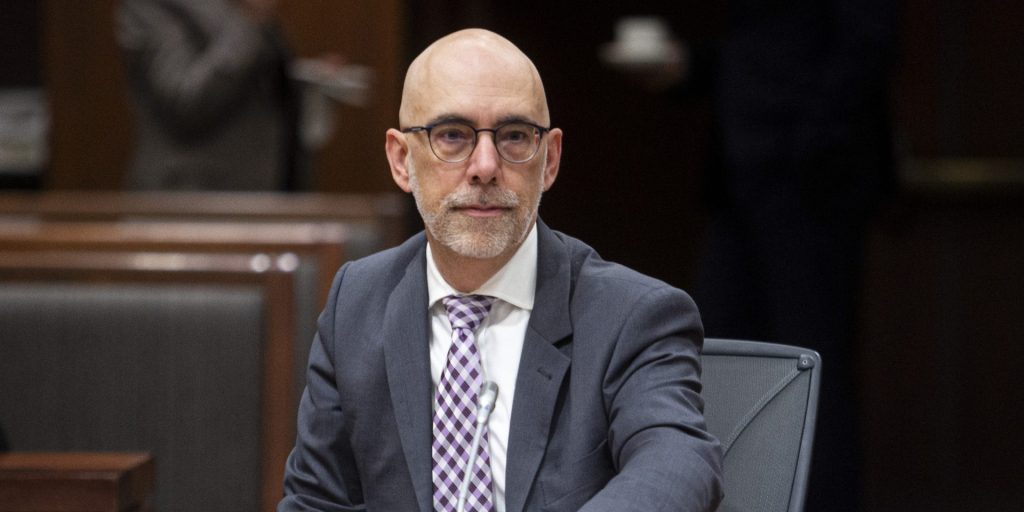
The deficit projection did not account for the potential effects of U.S. tariffs, but did include adjustments for “heightened economic uncertainty,” according to the PBO.
PBO YVES GIROUX and his team will also help political parties to cost the various election proposals they are kicking around—if the parties choose to ask for the PBO’s help. The parties can decide whether or not to permit the PBO to publish his estimates for those proposals.
In the news
New electoral maps aids Tories: The recent redrawing of federal electoral boundaries might help the Conservatives to win more seats. STEPHEN JEFFREY has that story.
Turks call on feds to speak out: Some Turkish Canadians are demanding that Ottawa condemn the arrest of a political opposition leader in their country. IREM KOCA reports.
Ex-staffers, where are you now?: LAURA RYCKEWAERT tracks the career moves of former Hill staffers who have left their jobs. You can read her story here.
Election launches, captured on camera: photographers SAM GARCIA and ANDREW MEADE captured the election launch events for Mark Carney, Pierre Poilievre, and Jagmeet Singh for The Hill Times. You can see their work here.
What else is happening today?
Mexico’s ambassador to Canada is making public remarks in Montreal, as part of an event hosted by the Montreal Council on Foreign Relations. CARLOS MANUEL JOAQUÍN GONZÁLEZ will deliver a speech on “Mexico in North America: strategic presence and future perspectives”, at around 1 p.m. Details here.
China, India and Pakistan could try to interfere in Canada’s elections: Security officials
Federal officials held a press conference yesterday to reveal the threats to Canada’s election from foreign states, and what the government’s security agencies are doing to tackle them.
They recognised that China will try to target Chinese and ethnic communities across Canada and interfere in the election process.
“The PRC is highly likely to use AI enabled tools…and social media to promote a narrative that is favourable to its interest,” said VANESSA LLOYD, the chair of the Security Intelligence Threats to Elections Task Force.
India, she added, has the “intent and capability” to meddle in Canada’s democratic institutions, and could use its proxies in the country for the purpose.
Russia too could spread disinformation using the social media networks, according to the feds.
The officials named Pakistan as another potential disruptor, as it attempts to curb India’s global influence.
They were asked questions on various other topics, including curtailing bots and fake profiles on X, and ELON MUSK’s endorsement of Canada’s Conservative leader.
Canada’s chief electoral officer, STÉPHANE PERRAULT, also addressed the topic of foreign interference during his own press conference earlier in the day.
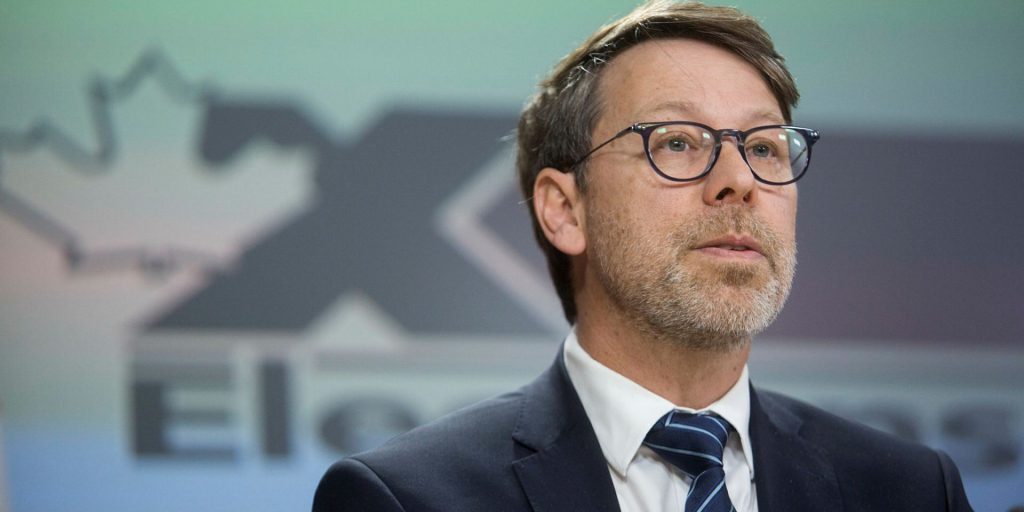
Here are some of the highlights from their responses.
- Their threshold for making a public announcement about foreign interference during the election campaign is high, meaning that they will raise alarm openly only when they detect something that poses a really high risk of hampering a free and fair election.
- Elon Musk promoting Pierre Poilievre does not constitute foreign interference, as it is an expression of his personal opinion, as per the feds. Similarly, Alberta Premier DANIELLE SMITH’s attempts to convince President Donald Trump’s officials to pause tariffs for the time being, to help Pierre Poileivre win the election, also does not constitute foreign interference. The chief electoral officer, Perrault, said he considered Smith’s outreach to be “just politics”, and said he wouldn’t launch a probe unless they receive a formal complaint.
- Canada has a digital media network composed of think-thanks and academics that will work to identify bot campaigns like the one that occurred last August, and amplified a Conservative Party campaign in Kirkland Lake. But, they can only track open-source content on messenger apps like We Chat or Instagram, some of which were mentioned in the Foreign Interference Commission’s report.
- The officials currently did not perceive American far-right groups as potential election meddlers, but said they can take action if their review suggests any kind of threatening behaviour originating in the U.S.
In case you missed it
Mark your calendars: The federal leaders will gather at the Montreal headquarters of Radio-Canada next month for televised debates organized by the aptly-named Leaders’ Debates Commission.
Yesterday the Commission announced that the French-language debate will take place on April 16 at 8 p.m., and the English debate will be held the following night, on April 17, at 7 p.m.
The leaders of the federal Liberals, Conservatives, NDP, Bloc Québécois, and Green Party will all qualify to participate under the criteria set out by the Commission.
Green co-Leader Jonathan Pedneault will represent his party at both debates.
Trudeau gov kept 45 per cent of promises: think tank
The third-term JUSTIN TRUDEAU government fulfilled just 44 per cent of its election promises in full, according to an analysis published by the Université Laval’s Centre for the Analysis of Public Policy.
The think tank operates the “polimetre,” a tool it uses to track and display the promises that have been made and broken by Canada’s federal government. It determined that in the 44th Parliament, which followed the 2021 election, the Trudeau-led government kept 44 per cent of the promises it had made, partially kept another 32 per cent, and broke 24 per cent of its promises.
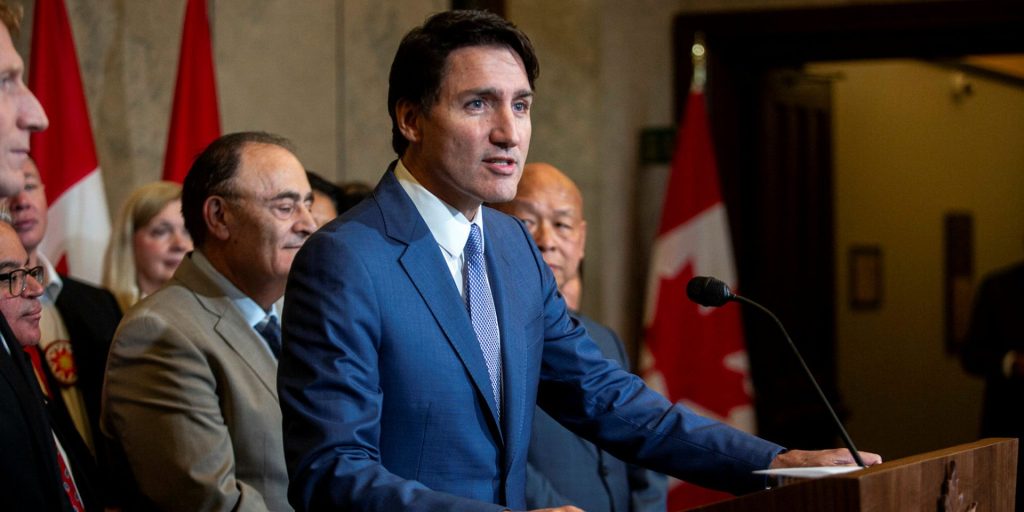
The third-term Trudeau government, to be fair, operated in a minority parliament that did not quite go full term—though, one in which it could rely on NDP support. It also faced considerable obstruction in the House of Commons from the opposition Conservatives. During its first majority term, on other hand, Team Trudeau kept more than two-thirds of its promises, according to the polimetre.
By contrast, STEPHEN HARPER’s Conservative majority government (2011-2015) kept 77 per cent of its promises, partially kept another seven per cent, and broke 16 per cent, according to the tool.
You can peruse the list of promises that were—according to the Centre for the Analysis of Public Policy—kept and broken here.
Trump may make industry-specific exemptions when reciprocal tariffs come into effect on April 2
If you have lost track of which U.S. tariffs are currently applied on Canada, and which could still be coming, here’s a new update from President Donald Trump’s government to add to the confusion.
Apparently, as per reports by the Washington Post and later by CBC News, Trump may grant immunity to some industries from the tariffs that come into force on April 2.
To recap, he first proposed to hit all of Canada’s exports to the United States with a 25 per cent tariff, which he tied to the fentanyl trade across the border. It first had a deadline of February 1, then that was pushed to March 3.
The tariff on Canadian goods that met the requirements of the Canada-U.S.-Mexico free trade agreement was again delayed by a month after Trump’s second round of phone calls with former prime minister JUSTIN TRUDEAU. So, products that do not comply with the agreement are currently impacted by the tariff.
President Trump also imposed a 25 per cent tariff on steel and aluminum specifically, which he claimed was in the interest of protecting America’s domestic industry. While the feds have met with Trump’s officials to try to get those removed, the tariff has been applicable since March 12.
Trump did, however, give a breather to the auto sector for a month, after three big American automakers raised concerns about their supply chains being impacted.
A third set of tariffs, that are reciprocal and apply to countries that have trade barriers or major trade surpluses with the U.S., are due to come into force on April 2, too. But the latest reports suggest that their scope might be narrower than earlier believed.
Canada could again be at the receiving end of these reciprocal tariffs: for one thing, Trump has repeatedly complained about Canada’s supply managed dairy sector as being unfairly restrictive to American exports. CBC News has more on it here.
This week’s book give-away: Just Around the Corner
This week’s book give-away is Just Around the Corner, by former Liberal MP YVONNE RUMBOLT-JONES, and published by Breakwater Books.
From the book’s back jacket: “An intimate memoir from the longest-serving female politician in Newfoundland and Labrador, Just Around the Corner uncovers Rumbolt-Jones’ strength as a survivor as well as her determination and courage, throughout both her private life and her political life. She reveals her early years of dealing with child sexual abuse and experiences with family alcoholism, and her challenges as an adult confronting personal grief and loss, the sexism, public scrutiny, and challenges of party politics, as well as being diagnosed with cancer—twice. Through it all, the thread of Rumbolt-Jones’ love for Labrador and its people, and her hope and joy in working for the future of both shines through. She writes with confidence and candour about overcoming adversity and marginality to be elected to both the provincial House of Assembly and the national Parliament, where she has been a strong leader and voice for women, Indigenous Peoples, and Canada’s North. Her story is that of a woman who refused to let the scars of the past define her, but instead used them to help her grow and understand that while we many not control what harms us, we can control how we move forward.”
This week’s question: when was Yvonne Jones first elected to Parliament?
Please send your responses to news@hilltimes.com by NOON today and the winner’s name will be drawn. Good luck.
Send your news tips to pmazereeuw@hilltimes.com and rkachhela@hilltimes.com





 LICENSING
LICENSING PODCAST
PODCAST ALERTS
ALERTS